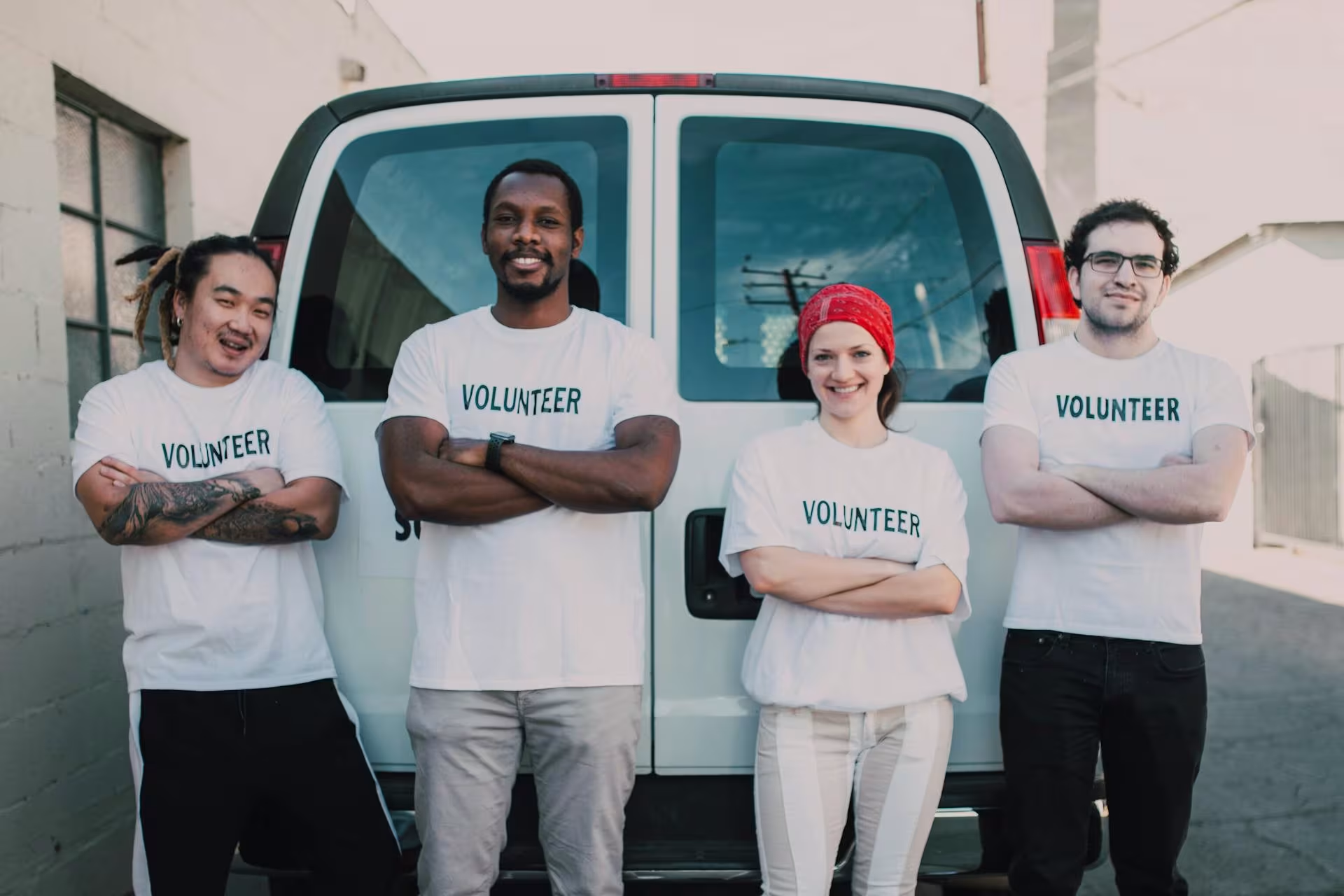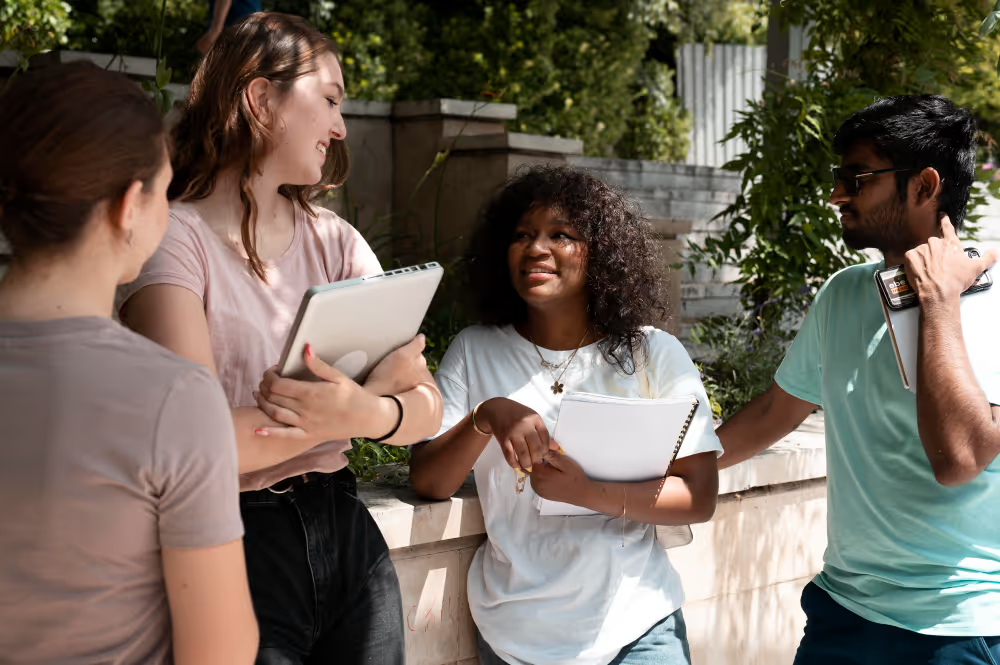
Germany's volunteer visa lets young people from around the world do meaningful work while experiencing life in one of Europe's most exciting countries. This special visa allows you to join official volunteer programmes in areas like social work, environmental projects, cultural exchange, and international development.
Whether you want to work with children, help refugees settle in, or protect German forests, Germany welcomes volunteers from around the world. The German Volunteer Visa makes it possible for non-EU citizens to live and volunteer in the country legally for an extended period.
Eligibility Requirements for the German Volunteer Visa
To qualify for a volunteer visa, applicants must meet certain eligibility standards that ensure they are prepared for the experience both legally and personally. The requirements vary slightly depending on the programme and the applicant’s nationality, but the core criteria remain consistent.
Who Can Apply
If you're from outside the EU, EEA, or Switzerland, you need a volunteer visa to join recognised German volunteer programmes. You must have finished your compulsory schooling in your home country and have a real interest in voluntary work. Students, recent graduates, and young adults often use this opportunity to gain practical experience before continuing their studies or starting their careers.
Age Limits and Nationality Criteria
Most volunteer programmes in Germany are open to individuals aged 18 to 27, though some accept applicants older than 27 depending on the nature of the service. Non-EU nationals require a visa to enter Germany for volunteering, while EU/EEA citizens can participate without one. It’s always important to check programme-specific rules before applying.
Language Requirements for Volunteers
You don't always need to speak German to get the volunteer visa. However, a basic understanding of German (A1–A2 level) is often recommended, as it helps with daily communication and workplace integration. Some programmes, especially those working directly with German children or vulnerable people, may require B1 level German before you start.
Recognised Volunteer Programmes in Germany
Germany offers several structured volunteer programmes, each with a different focus. These programmes are supported by the government or international organisations and cater to different areas ofservice. You can only get a volunteer visa if you join an officially recognised programme.
FSJ – Voluntary Social Year
The Freiwilliges Soziales Jahr(FSJ) is Germany's most popular volunteer programme. It focuses on social and educational fields such as healthcare, youth work, and disability support. Volunteers typically assist in hospitals, kindergartens, or social centres for 6 to 18 months.
The FSJ is particularly popular among young people seeking hands-on experience in social work or nursing. Although a monthly allowance is provided, the programme is usually unpaid. Often volunteers receive accommodation, meals and reimbursement of travel costs.
BFD – Federal Voluntary Service
The Bundesfreiwilligendienst (BFD) is open to all age groups and covers social, environmental, and cultural projects. It’s a flexible programme that encourages civic engagement beyond youth-focused schemes. You might work on environmental projects, at sports clubs, in museums, or with emergency services.
The BFD is open to both Germans and internationals. Volunteers receive guidance, training, and certificates that can support future job or study applications.
FÖJ – Voluntary Ecological Year
The Freiwilliges Ökologisches Jahr (FÖJ)offers opportunities to volunteer in environmental and sustainability projects. Participants work in areas such as nature conservation, organic farming, renewable energy, and environmental education.
It’s ideal for those passionate about climate action and green initiatives, allowing them to gain practical ecological experience while contributing to environmental protection in Germany.
Required Documents for the Volunteer Visa Application
Preparing your visa application carefully helps avoid delays and rejections. Below are the essential documents you’ll need to gather before submitting your application.

Personal Documents and Completed Visa Form
When applying for your German volunteer visa,you’ll need to prepare the following personal documents:
· Valid passport: must be valid for at least 6 months beyond your intended stay and have 2 blank pages.
· Completed visa application form: available from your local German embassy or consulate website; fill it out correctly and sign it.
· Recent biometric passport photos: 2 identical photos taken within the last 6 months that meet Schengen photo standards.
· Proof of financial means: show that you can support yourself during your stay. Typically, the organisation will cover accommodation, food costs and pocket money. If this is not the case for you, you will need to provide additional proof of finances. This can be:
o A Blocked Account showing sufficient funds, or
o A sponsorship or commitment letter (Verpflichtungserklärung) from your host or a sponsor in Germany.
· Cover letter – a short letter explaining your motivation for volunteering, your chosen programme, and how it aligns with your goals.
Programme Confirmation and Host Agreement
Alongside your personal documents, you’ll need to provide proof that you’ve been officially accepted into a recognised volunteer programme in Germany. These papers confirm that your stay is genuine and structured.
You will need an official confirmation letter or invitation from your host organisation. This must include:
· The programme name (e.g., FSJ, FÖJ, or BFD)
· The duration of your placement (start and end dates)
· The role and responsibilities you’ll take on as a volunteer
· Details of any benefits provided, such as pocket money, meals, or accommodation
Health Insurance
Applicants must have comprehensive health insurance that is valid in Germany as this is mandatory for all residents. Additionally, without valid health insurance your visa application will not be approved. The health insurance must cover all medical treatments, including emergencies and getting you home if needed, with at least €30,000 coverage.
Application Process for the German Volunteer Visa
The volunteer visa application follows a similar process through German embassies or consulates abroad. Understanding the step-by-step process helps you plan your timeline and avoid common mistakes during the visa application.
Where to Submit the Application
You will need to submit your volunteer visa application at the German embassy or consulate in your country of residence. Some countries have visa application centres, such as TLScontact, that handle document submission and fingerprints on behalf of the German embassy.
Never try to enter Germany on a tourist visa planning to apply for a volunteer visa after you arrive. This breaks the rules, and your application will be rejected.

Application Steps and Appointment Booking
Getting your volunteer visa for Germany might seem a little overwhelming at first, but it’s easier than it looks once you break it down. With some organisation and attention to detail, you can move smoothly from planning to approval.
1. Gather all required documents.
2. Book an appointment through the German mission’s online system at least 3 months before your planned travel date.
3. Attend your visa interview and submit the application in person. Make sure to arrive at least 15 minutes early and bring all requested documents.
4. Pay the visa fee and provide biometric data, such as fingerprints and photos, if required.
After the appointment, you’ll receive a receipt or tracking reference number. Keep this safe, you can use it to check the status of your application while it’s being processed.
Processing Time and Visa Fees
The average processing time for the volunteer visa is 3 to 12 weeks, depending on the embassy’s workload and your application quality. If your documents are incomplete or incorrect, this could result in longer processing times.
Visa fees usually cost €75, but some volunteer programmes cover this cost for selected participants. In most cases, you can pay the fees in your local currency during your visa appointment either in cash or via debit/credit card.
Once your volunteer visa is approved, you'll typically get a visa valid for 90 days to enter Germany. After you arrive, you register with local authorities and get your residence permit card for the full programme length.
Conditions and Benefits During the Volunteer Programme
Knowing what to expect during your volunteer placement helps you prepare practically and mentally. German volunteer programmes balance meaningful work with good support and personal development.
Working Hours and Time Off
Volunteers usually work 30 to 40 hours per week, depending on the project. You are entitled to at least 2 days off per week and at least 25 days of annual leave depending on your programme and how long you stay. You can also get extra time off for mandatory training seminars, which count as part of your volunteer service, not holiday.
Monthly Allowance or Pocket Money
Volunteers usually don't get a salary. Instead, you receive monthly pocket money (Taschengeld) typically between €150 and €420 to cover personal expenses. This money isn't meant to be a wage but rather something to help with daily costs beyond what your host organisation provides. Some programmes also give extras like travel passes and bike rental help so you can explore your area.
Housing and Meals Provided by Host Organisation
Most host organisations offer free accommodation, reducing your living costs significantly. In most cases, the accommodation is in shared flats, dormitories, with host families or at your placement location, especially if you are volunteering at a hospital or social centre. In cases where accommodation isn’t provided, a housing allowance may be included in the support package.
Many volunteer programmes also provide free meals or a monthly food allowance to help cover daily living expenses. In institutions such as hospitals, schools, or care homes, meals are often provided on-site during working hours. Volunteers living with host families often share family meals, which is a lovely way to learn about German food culture and practise the language.
Visa Duration and Extension Rules
Your visa’s duration depends on your programme's length, but there are options to extend or transition into other residence permits after completing your service. If you want to stay longer or plan what comes next, you need to understand how long your visa lasts and whether you can extend it. These rules affect whether you can keep volunteering or switch to another type of visa.
Length of Stay
Your volunteer visa covers the exact length of your volunteer programme, usually 6 to 12 months, with a maximum of 18 months for most programmes. The visa gives you 90 days to enter Germany, meaning you must arrive within three months of getting your visa.
When you arrive, register with the local residents' office (Einwohnermeldeamt or Bürgerbüro) and you'll get your residence permit card valid for your programme's full length.
It’s important to ensure your passport is valid for the full duration of your stay plus at least 3 additional months. Otherwise, the visa validity may be limited.
Extension Process and Options After the Programme
If you want to continue living in Germany once your volunteer service ends, several legal pathways are available. However, you must start the extension or status change process before your current visa expires.
If you want to extend your volunteer placement within the same programme, apply for an extension at your local foreigners' office (Ausländerbehörde) well before your permit expires. Extensions are granted when your host organisation supports you staying and the total time doesn't exceed programme limits.
You may also be able to apply for other visas, if you would like to stay in Germany after the programme. Depending on your qualifications and future goals, you may be eligible for a student visa or an apprenticeship (Ausbildung) visa.
FAQs
Find answers to common questions about visa in Germany.
How long does it take to get a volunteer visa for Germany?
On average, processing for the volunteer visa takes 3 to 12 weeks, though it can vary depending on your country and the season. It’s recommended to apply at least 3 months before your planned start date.
Do I need health insurance for a volunteer visa in Germany?
Yes, health insurance is mandatory for all visa applicants and German residents Your insurance must cover all medical treatment in Germany, including doctor visits, hospital stays, prescriptions, and emergency transport back to your home country.
Can volunteers get paid in Germany?
Volunteers in Germany get a monthly allowance or pocket money and not a salary. This allowance usually ranges from €150 to €644 per month and covers personal expenses beyond the accommodation and meals your host provides.
Can I stay in Germany after my volunteer program ends?
You can stay in Germany after your volunteer programme if you get a different residence permit before your volunteer visa expires. Common options include a student visa if you've been accepted to a German university or a training visa for vocational education (Ausbildung).
Get Your Visa-Ready Package
Start your journey to Germany with our all-in-one visa solution tailored for your needs.
Related Visa Guides
Discover additional articles covering different visa types, requirements, and application tips for Germany




